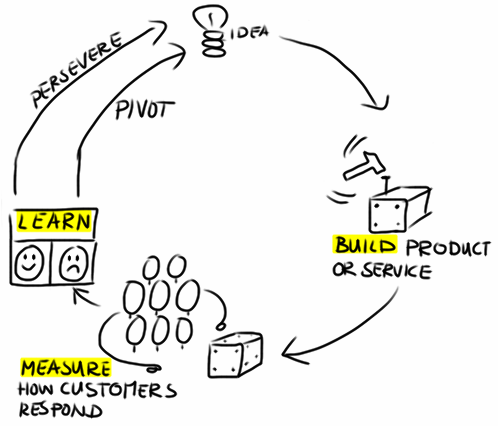It Seems That Everyone Wants To Start An Online Business These Days – And With Good Reason!
The flexible, low-overhead model of an online business is appealing for so many of us looking for something more from our careers than just a paycheck.
So, what can you do to make sure that you have the best chance at success with your new venture?
Well, I’m sure you’ve heard the old Abraham Lincoln quote about chopping down a tree:
If I had eight hours to chop down a tree, I’d spend six hours sharpening my ax.
Old Abe was a smart guy, wasn’t he?
Well, we think starting a business is a lot like chopping down a tree:
Spend a little time ‘sharpening your ax’ in the beginning, and it will pay off big time in the end.
We’ve found that ‘sharpening your ax’ means to spend some quality time thinking through the business you want to start, so that you make sure the business is one you are really excited about starting, and that you have a thoughtful plan of attack.
These 12 questions will help you start an online business you love.
Don’t worry, this isn’t some stuffy business plan exercise where we are going to ask you to product a 90 page document that you’ll never look at again.
After starting many businesses ourselves, and working with thousands of entrepreneurs over the last ten years, we’ve come up with 12 simple (but powerful!) questions that will help you get off to a good start with your online business.
Spend some time answering these thoughtfully, and you’re ahead of 90% of people that jump into business (and fail) without much thought as to how they’ll build a business that they’ll love and is successful.
Then, if you’d like, grab our free guide ‘7 Secrets to Designing a Business That Gives You Ultimate Lifestyle Flexibility’ at the end of this post to help you plan your new business to be a fit for the lifestyle you want to create.
Ok, let’s get to it!
Question #1: Why do you want to start an online business in the first place?
You really need to think through this one really carefully!
It’s our experience that people start businesses for four reasons:
- Passion – these people are in love with their craft, idea, or product and want to spend all of their time and energy on
this passion. - Money – these people want to make more money, easier money, or some combination of the two.
- Freedom – these are the people who can’t stand another day of being told what, when, and how to do their jobs. Or, they just want to be able to live anywhere, travel anywhere, and work when they want.
- Purpose – these are people with an idea that they believe is so important and world-changing, that the idea is almost more important than themselves. They MUST do everything they can to make it a reality.
Now, the reality is that you may want to start a business due to a combination of these reasons, but it’s critical that you rank them in terms of importance to you and the life you want to create for yourself.
For example, if you could make $1 million per year, but you had to work 120 hour weeks at an oil field in Siberia, would you do it?
Some people will answer “Of course! I’d do ANYTHING for $1 million!!!”
Clearly, money is their priority.
For me, the answer would be “NO WAY!”.
Freedom and Passion are much more important to me than money, and I know from experience that I can actually have the money without sacrificing the other two.
So think carefully on this one, think long term, and be honest with yourself. This will be a major driver of business decisions for you moving forward.
Question #2: Does this business model support the lifestyle you want?

Once you’ve answered Question #1, you really need to evaluate if the business you are considering starting will match up to your priorities determined in Question #1.
Otherwise you’ll build a business that will make you completely miserable…which is miserable! And trust me, I know MANY entrepreneurs who have done this exact thing.
Things that are of particular importance for entrepreneurs, that can vary dramatically from business to business are:
- Freedom of time
- Freedom of location
- Earnings potential
- Customer interaction requirements
- Employee requirements
- Legal/regulatory environment
To use an extreme, but common, example:
DON’T start a restaurant if you want freedom of time and location!
So many restaurant owners are totally miserable.
All businesses have varying degrees of freedom, income potential, etc. – it’s important to think them through carefully.
Do you want clients that you get to know personally, becoming a part of their lives?
Or do you want to sell widgets online to people that will never know who you are?
Are you ok working 9-5, or do you want total flexibility?
Do you need to take care of kids or elderly family members
during the day?
Does the business you’re considering match the lifestyle #2 you desire?]
Question #3: Are you building a business for shareholders, customers, or yourself?
There are BIG differences between the three!
If you are building a business for shareholders, then you have a legal and moral obligation to do with the business what will return the best returns to those shareholders.
You can’t turn the business into your personal piggy bank when you have shareholders that have invested their money into your business with expectation of return…that’s how people go to jail!
So think very carefully before you raise money for your business.
When you do, you are now working for them and their returns.
If you are building a business for customers, then responding to their needs becomes your number 1 priority.
Now, don’t get me wrong, every business must respond to customers’ needs to some degree, or they won’t be in business long.
But are you going to let them drive your decisions about the business, or are you going to establish ground rules for your business that won’t change for customer needs?
Believe it or not, you can establish rules about how your business will and will not operate that are 100% focused on the lifestyle you want, and still build a very nice, profitable business!
If you focus on building the business for yourself…for your needs and desires…then you will of course make some sacrifices. You likely should not raise money from investors.
And you will likely turn some customers away.
But at the end of the day, you’ll be left with a business that is yours.
But that’s not realistic for some businesses. For example, going back to Question #1 – you will likely need to raise outside money if you are starting a ‘Change the World’ business.
‘Change the World’ businesses tend to have some major development that is necessary and will take a lot of money to accomplish.
Is that what you are committed to? Or is lifestyle more important?
Question #4: What can you do to make your business unique?
Every business needs to be unique in some way in order for it to really thrive. If not, why would customers choose to buy from you over the competition?
Now, please don’t get me wrong…I’m NOT telling you that you have to invent something or create some new business model the world has ever seen.
In fact, I would advise against that in almost all cases.
But your business does need to have something that makes it stand out, more convenient, or more valuable to your customers.
I think a great example of how subtle this can be, but still be incredibly effective, is Southwest Airlines.
In terms of profitability, they have completely dominated the airline industry in the U.S. for the past couple of decades.
Why? They are running an airline just like every other airline. They buy the same airplanes, etc.
What makes them stand out and crush the competition are little things that everyone could theoretically copy, but nobody has been able to:
- Their sense of humor
- Their ability to get people on planes fast because they don’t assign seats (that means more on time arrivals and departures)
- Not charging for bags while everyone else is
They didn’t invent anything patent-protected, and yet they are very recognizably different from their competition, and it pays!
How can you make your business unique?
Question #5: Who will you start your business with?
Will you partner with someone to start your business?
Why, or why not?
There are very good reasons to have a business partner, but it doesn’t work for everyone.
I personally LOVE working with business partners. I feed off of their energy, and they compliment my talents with their own.
But most new business owners run into trouble when they take on a partner in their business.
Why?
Because they bring them on for the wrong reasons – just because they’re friends, family, etc.
Eventually, it becomes clear that they made a mistake and that they don’t actually add any value to the business.
That’s when things get tense, and often times expensive.
So how do you find a business partner that’s a good fit?
Here are some good questions to ask:
- Are you missing some skills that will be very hard to hire (instead of partner)?
- Does the person you are considering partnering with have proven experience in the role you are looking for them to fill?
- Will you be able to keep personal and business separate in the partnership you are considering?
- What are the daily responsibilities you are expecting this person to handle at the business? Do they expect the same?
If you can’t answer a resounding YES, to all of these questions, DON’T partner. At least not with the person you are currently considering.
Question #6: Who is your ideal target customer?
Most new business owners mess this up by giving a broad, general answer, thinking that it’s better to be able to identify a great, big potential customer base.
As an example, if I were starting an online store selling football jerseys, I could say that my target customer is ‘men who like football’.
That would give me about a gazillion potential customers, which sounds great.
But the IDEAL target customer is more like ‘men aged 18-27 that are rabid fans of football, watch every game, go to at least two live games each season, and that identify a particular player as their idol’.
That narrows my potential list of customers way down, but I’ve now got a much, much better idea of the person I’m trying to market to.
Being able to identify your true IDEAL customer avatar is critical when trying to get your marketing messaging and targeting right, which is incredibly important to get sales started fast and cost-efficiently.
Question #7: How will you get customers?
You will most likely be the person responsible for generating sales at your business for some time.
How will you get sales? Where will you find your customers?
You don’t need to have a detailed plan at this point, but you should at least have a general idea of what it’s going to take.
There are huge differences in sales models from one business to another, which will require different investment of time, energy, money and skills on your part.
Will you get customers from:
- Facebook ads
- Selling over the phone
- Selling from webinars
- Working with affiliates
- Content marketing
- Advertising via direct mail, radio, newspaper or television
- Speaking at live events
There can be big differences in approach and budget to each of these sales models, so you want to be really clear about which path you plan to pursue.
Some key things to consider:
- How are the best competitors in your industry getting customers?
- Do you have sales experience that would suggest you should go in one direction or the other?
- Do you have the budget to do advertising?
- Do you have the personality to do phone or in-person sales yourself?
Question #8: What resources do you need to get started?
The beautiful thing about starting an online business is that it can be done with very little investment.
But they DO require SOME investment! A big mistake I see many new entrepreneurs make is not having a thoughtful, realistic plan for just how much it will take.
Yes, setting up a website or ecommerce store can be done for a few hundred dollars, or even less.
But what about…
- Additional marketing, operations, and accounting tools to help you run your business?
- An advertising budget?
- Cash for outside vendors and services to help you where you need it?
- A budget for training to acquire the skills and knowledge you need?
- Your living expenses until the business is paying you well…which could be years from now?
Sorry, I don’t mean to rain on the ‘start a business for nothing and you’ll be rich tomorrow’ online marketing crowd…that’s such a sweet dream.
But if you’re like me, you’ll want a more realistic expectation of the resources that are necessary so you can budget for them.
There is nothing worse than running out of cash before you even get a chance to really get started due to poor planning!
Question #9: Can you build this business part time to start?
You very likely want to hang onto your job before you take the full-time entrepreneurship leap! It makes great sense to hang onto a paycheck for as long as possible.
Is it realistic to start the business you have in mind part time?
Can you start the business you are considering at night?
On the weekends?
Or does it require you to “be there” 8 hours of the day?
One important thing to consider when answering this question:
DO NOT start a business competitive to your employer while you are still working there! This can get you into a heap of expensive legal trouble.
Common mistake!
Question #10: Is this something you’d still enjoy 10 years from now?
Building a business can take years before you see the success you are looking for.
For that reason, I always plan on being involved in the business for 10 years, and ask myself if I’ll still be enthusiastic about the business by then.
Of course, you can never really know, but you should believe today that you’ll still be excited about your business 10 years from now, or you probably shouldn’t start it.
If you think a job is bad, think about having a business that you no longer enjoy! A job you can quit…a business gets completely intertwined with the rest of your life.
If you don’t think it will still be fun 10 years from now, don’t start it today!
Question #11: How can you test your idea fast?

Starting your business should be seen as running small, fast ‘experiments’ to determine if your business is viable, rather than act of going ‘all in’, as is commonly characterized in startup lore!
There is no need to mortgage your house to fund the business, if you can run a simple $1,000 advertising test first!
Brainstorm low cost and low risk ways to test a ‘minimum viable product’ to get real feedback from the marketplace before you invest too much money:
- Do people want/like your product?
- Will they pay what you need them to for your product?
- Can you affordably attract your customers?
- Is your ideal customer really the one you originally thought?
Once you have data from your initial tests, make adjustments and test again.
Lather. Rinse. Repeat. 🙂
Performing these little tests will give you real market-based information to help inform your decisions, and therefore dramatically reduce your risk.
(By the way, two of our favorite resources on this topic are The Lean Startup and Hacking Growth)
Going back to our restaurant example, instead of mortgaging your home to open the restaurant, you could first test your recipes with a food cart, or a temporary kiosk in the mall.
Every business can be tested, and every business should.
Question #12: Is there a proven model you can follow?
Don’t reinvent the wheel!
Following somebody else’s proven model is one of the easiest ways to ensure success.
That may mean buying a franchise, licensing a model, buying a how-to course, or just finding an experienced mentor to help you.
Regardless, look for proof of success and carefully model what it is they are doing.
But please note that I used the word ‘model’, not ‘copy’!
Refer back to Question #4…if your business isn’t unique in some way, you will not survive!
That’s It! 12 Questions to Help You Start a Successful Online Business!
You’ve ‘sharpened your ax’!
Just getting clarity on your answers to these 12 questions has dramatically increased your chances of starting a successful online business, whether you realize it yet or not.
As I said earlier, building a business requires hard work and smart work; you are now off to a great start.
Free Resource!
Ready to take the next step?
Grab our FREE guide: ‘The 7 Secrets to Designing a Business That Gives You Ultimate Flexibility to Work When, Where and How You Want to Work!’
These are the seven ‘levers’ we’ve found to be most important to create a business that you enriches your life, rather than controlling it!
Good Luck and Keep In Touch!
We’d love to keep in touch so we can hear how you are doing with your online business!
Please join our community on Facebook, follow me on Instagram, and get on our newsletter for great content about being an online entrepreneur!


